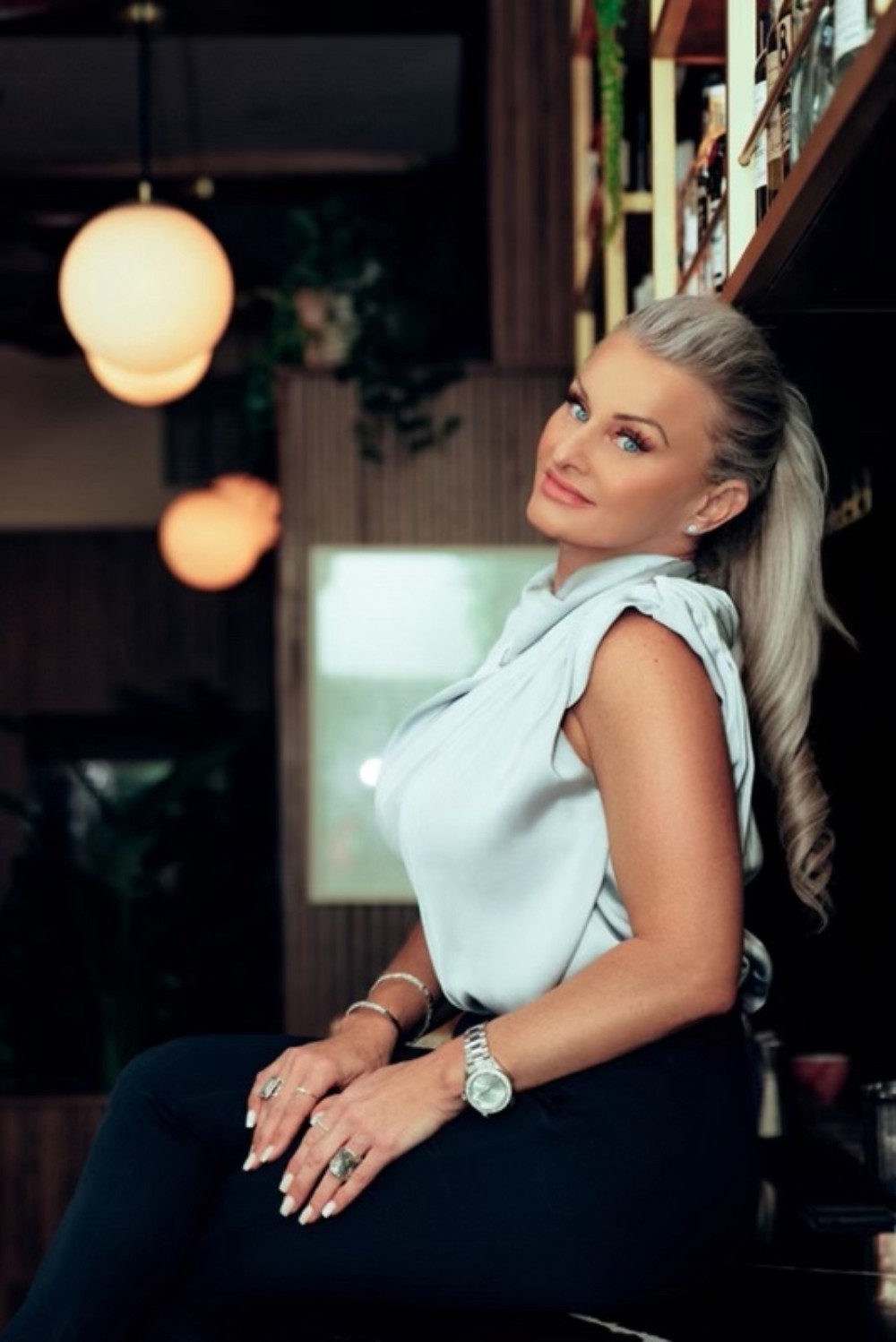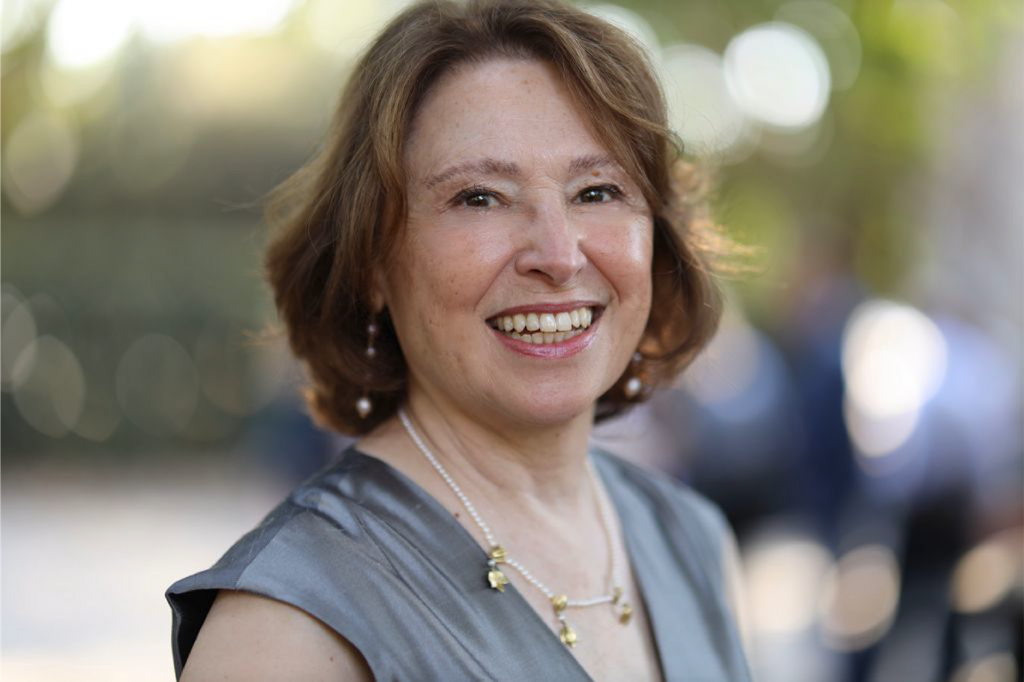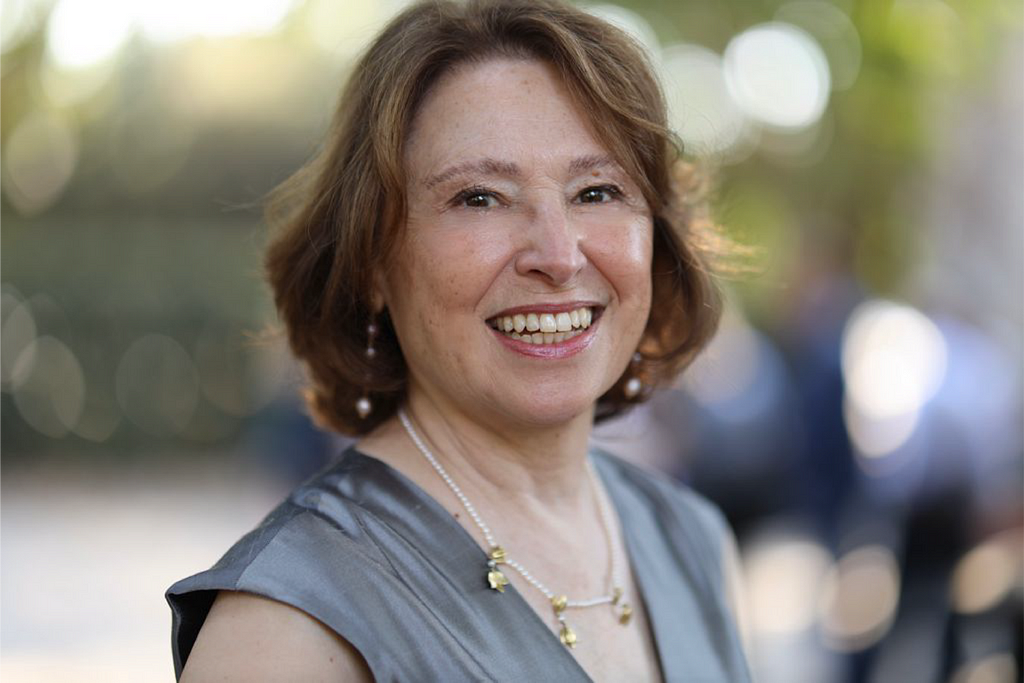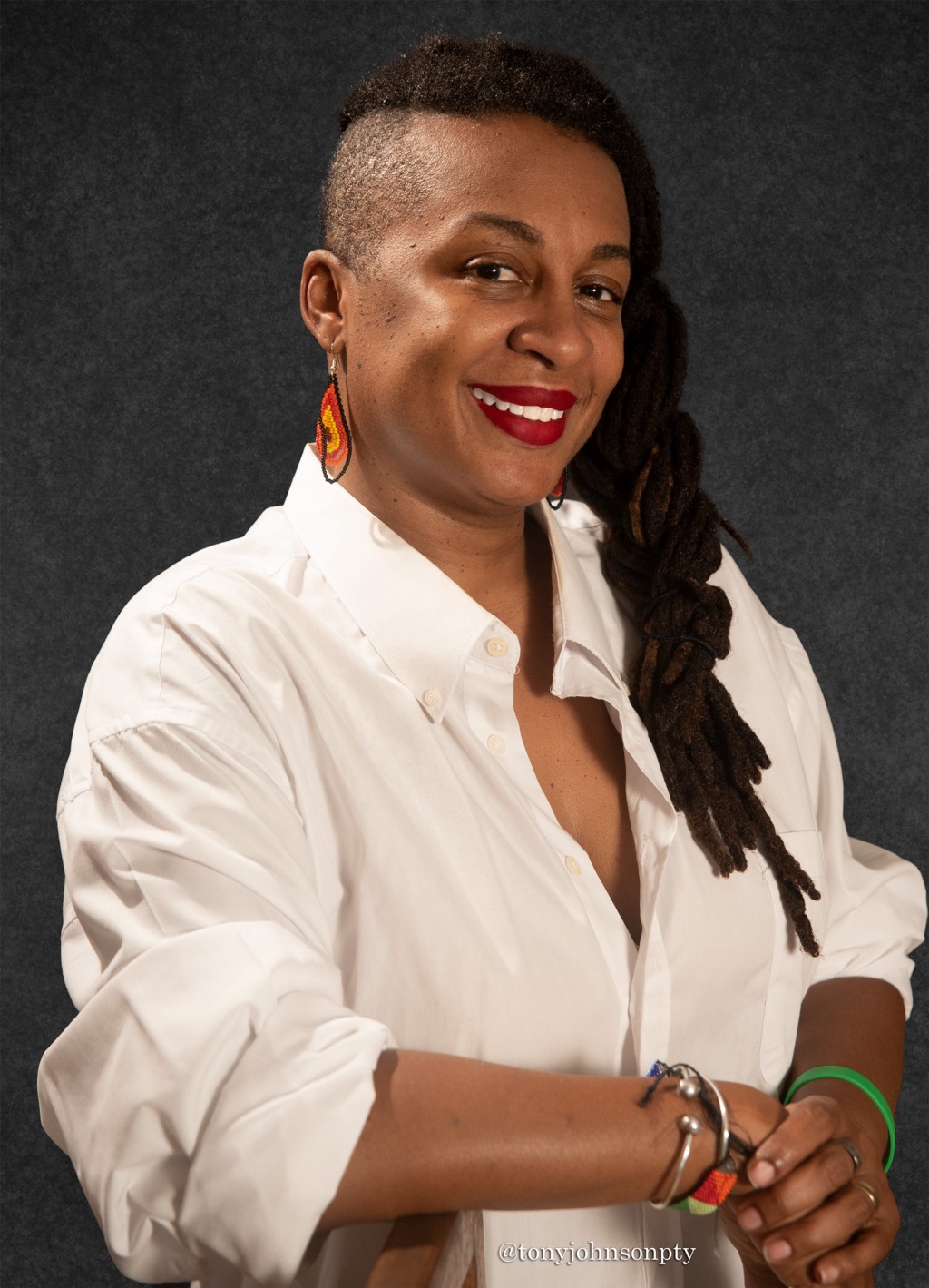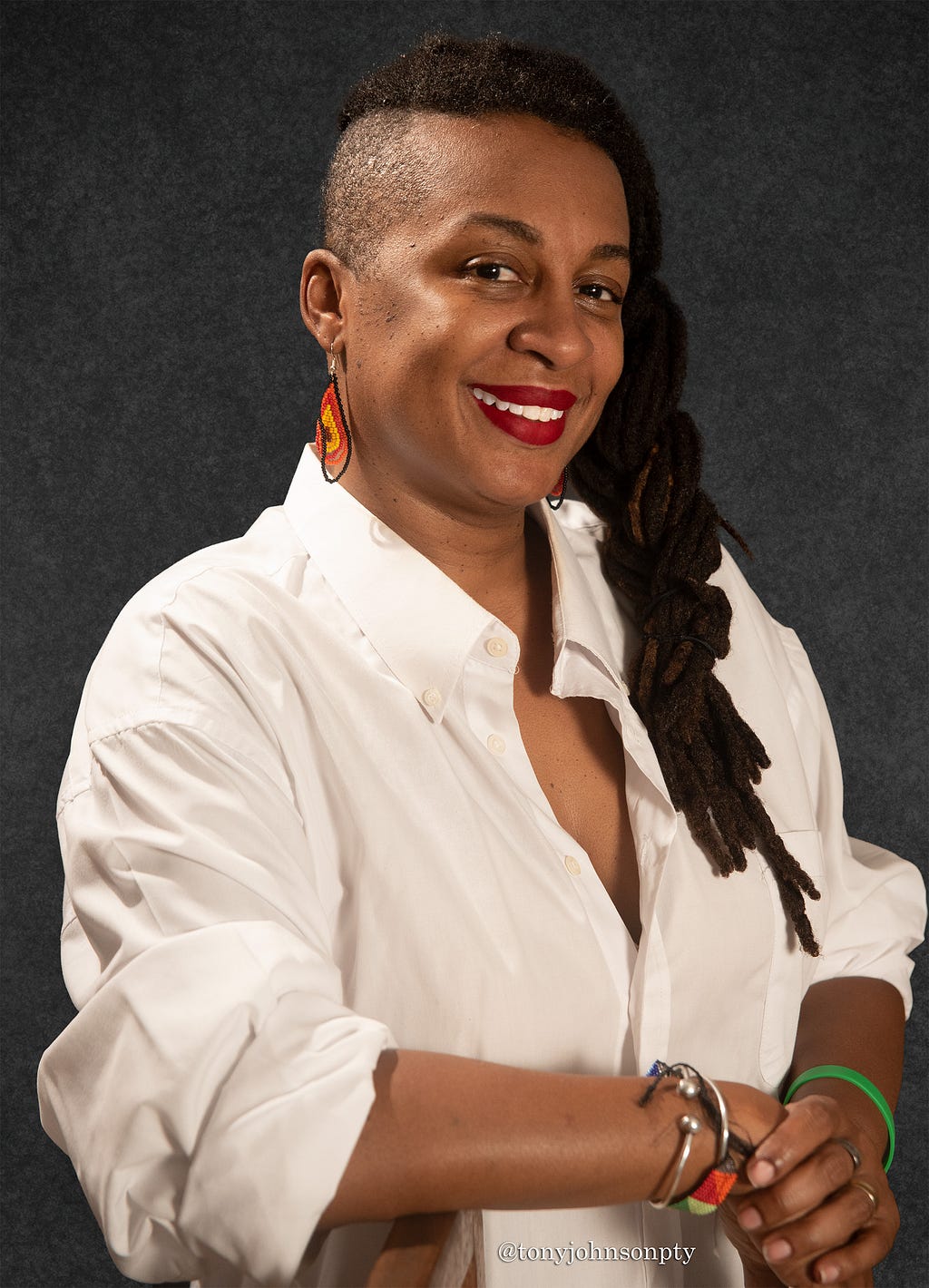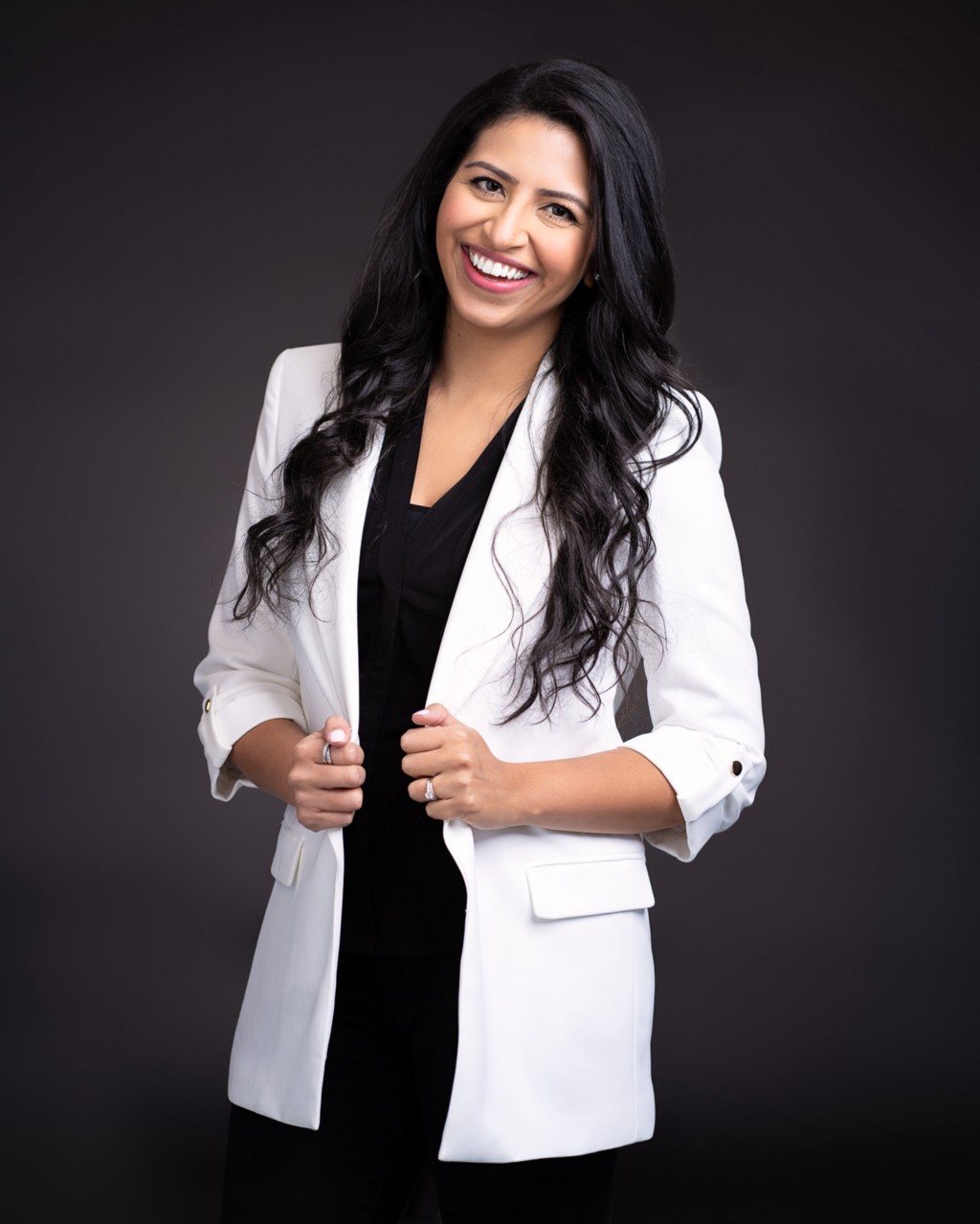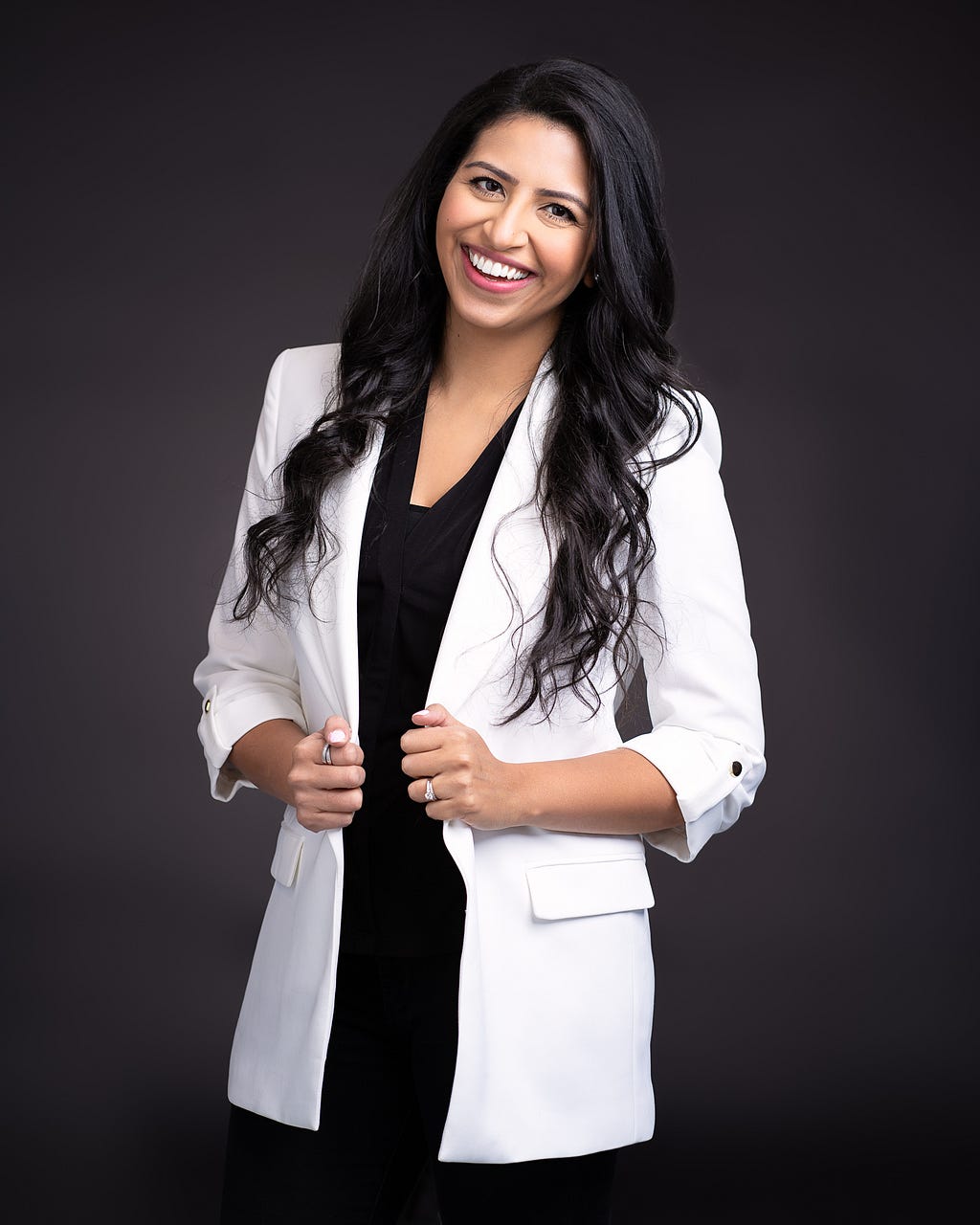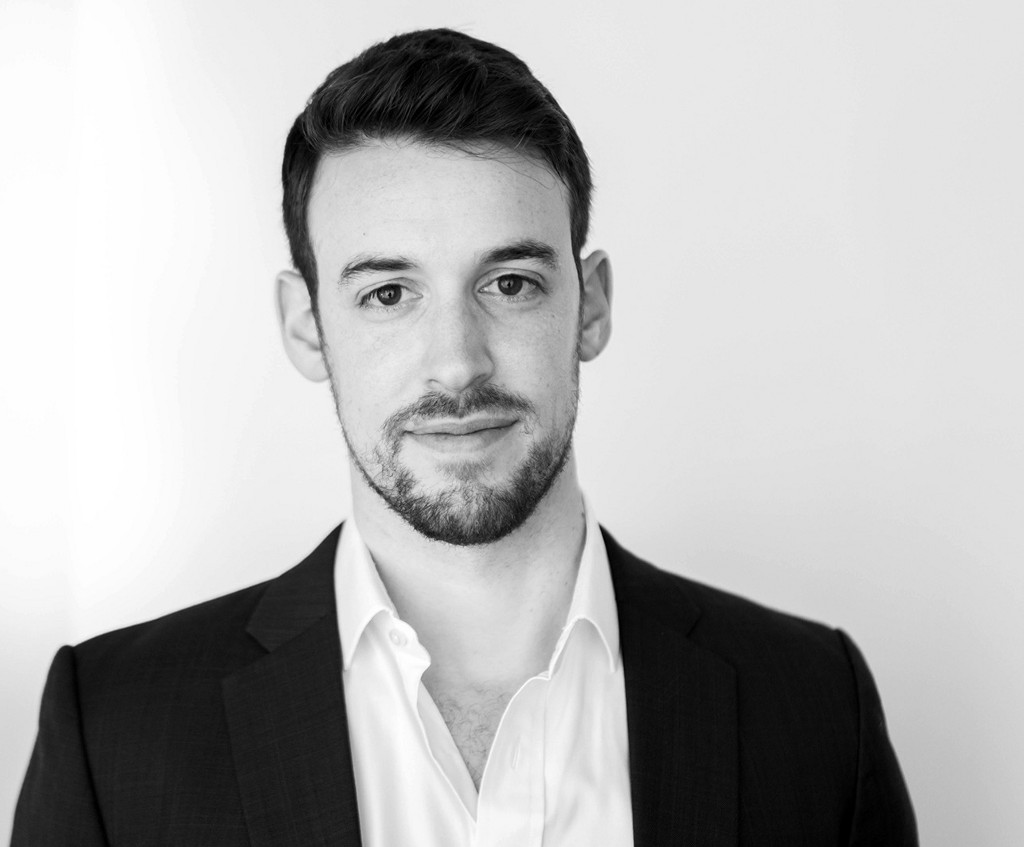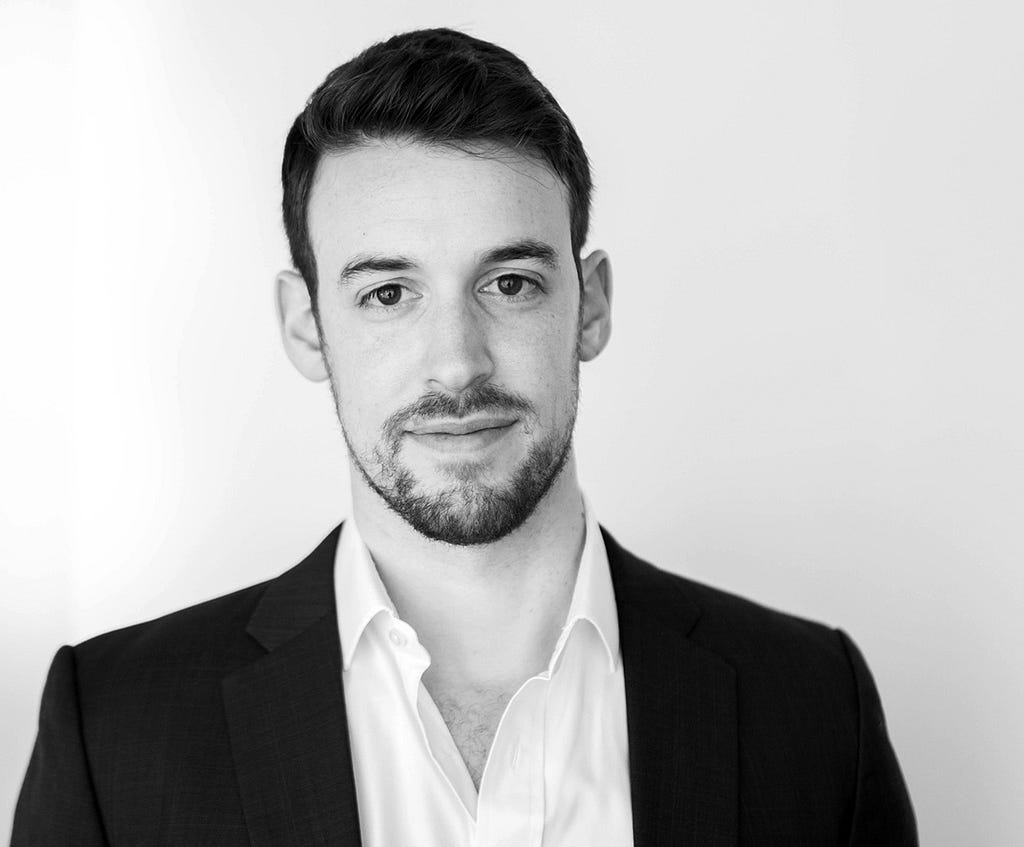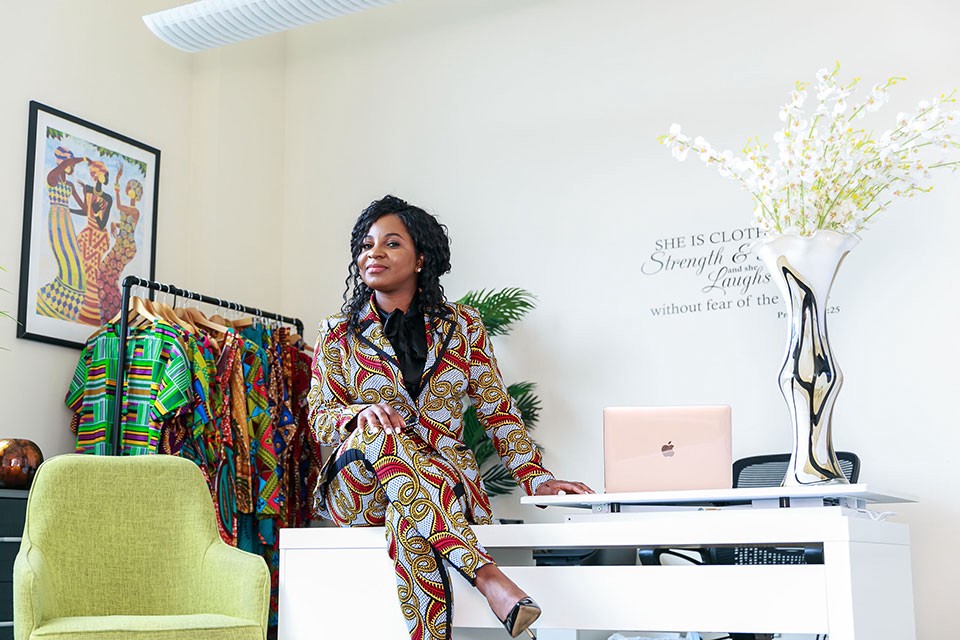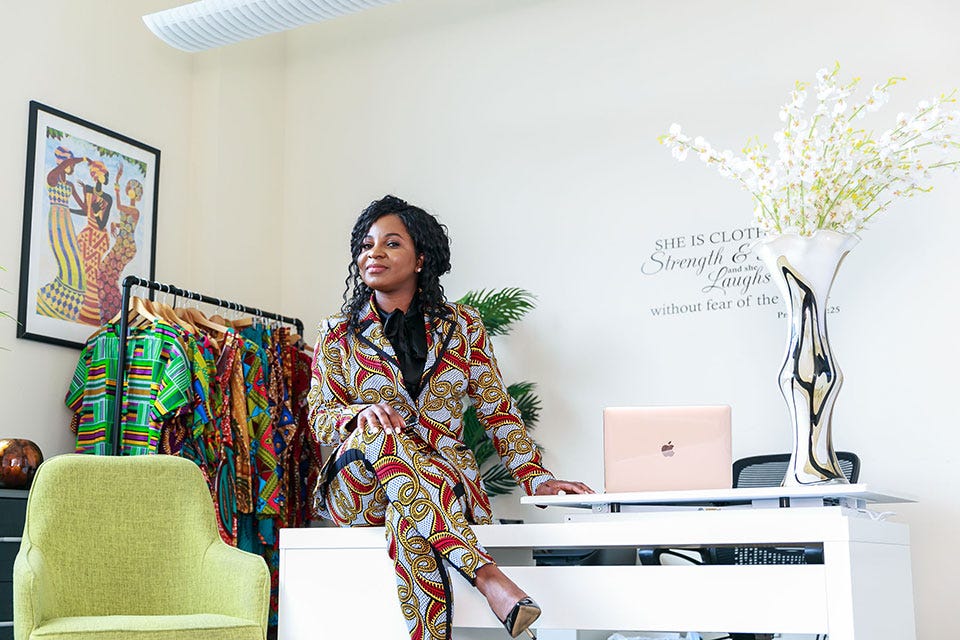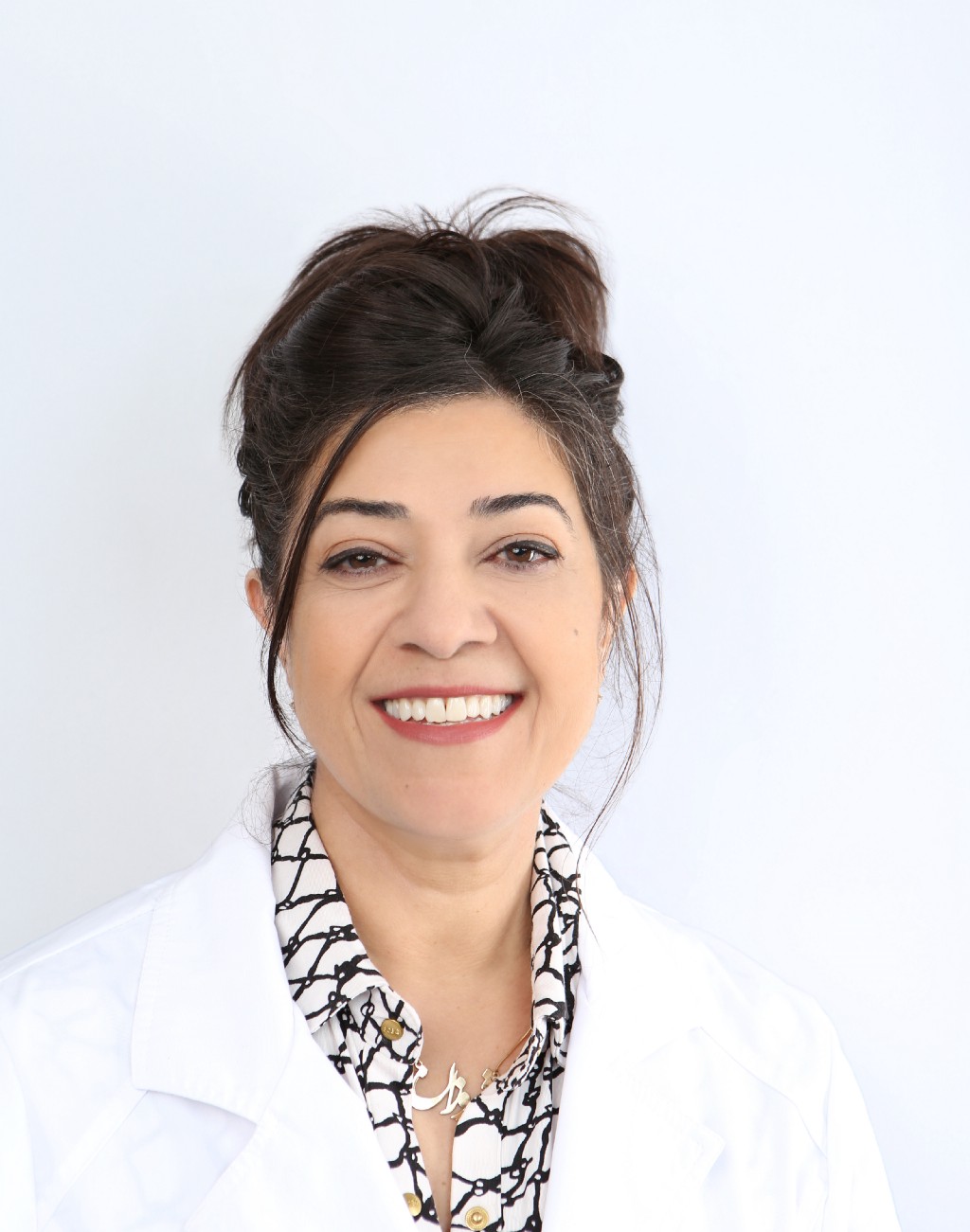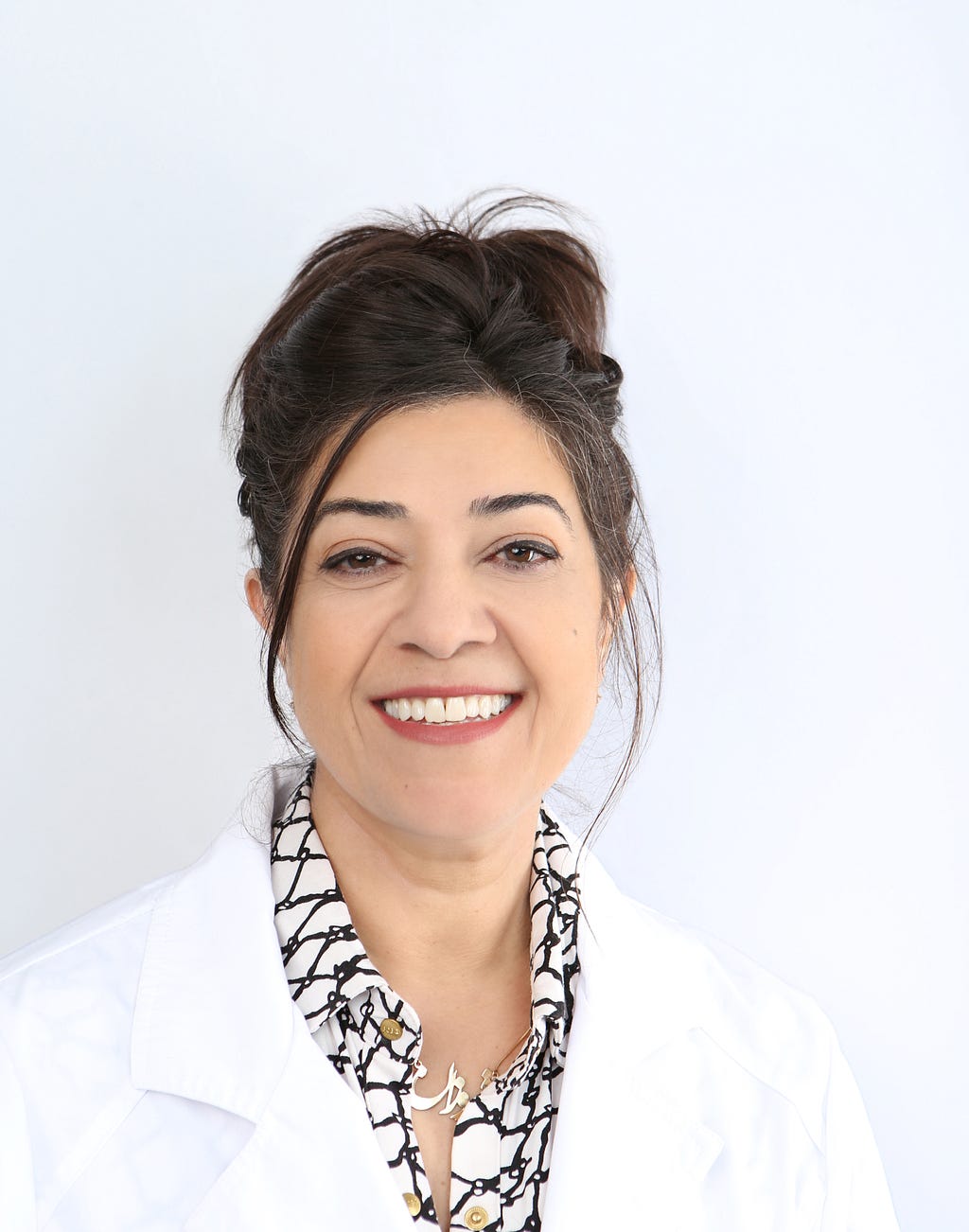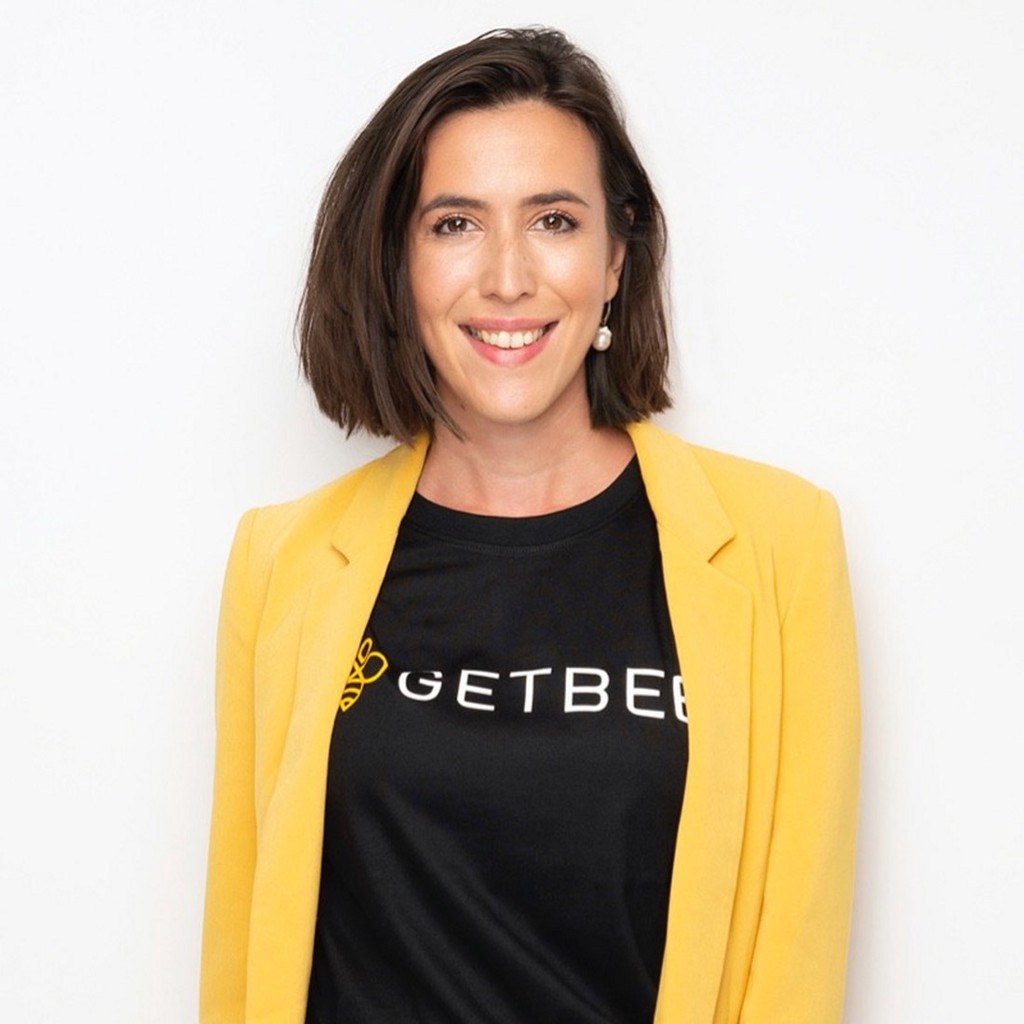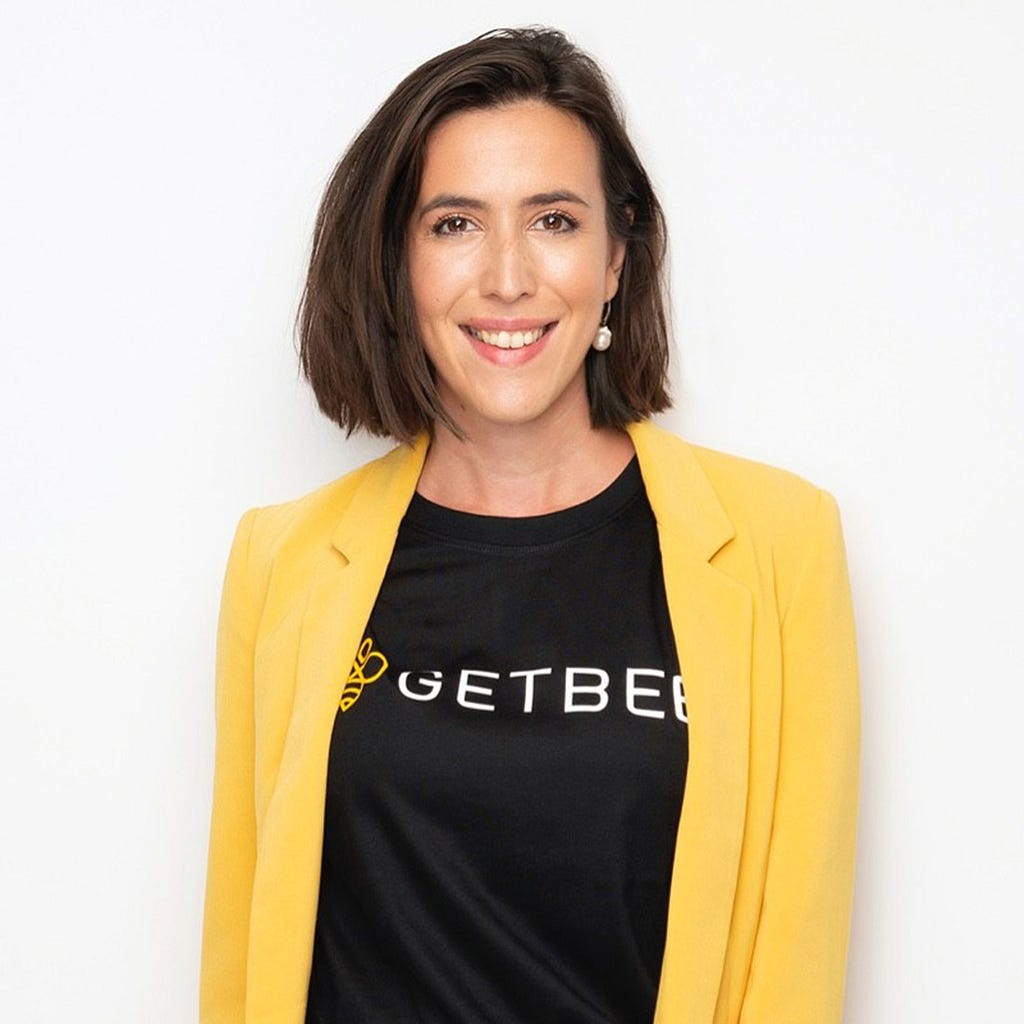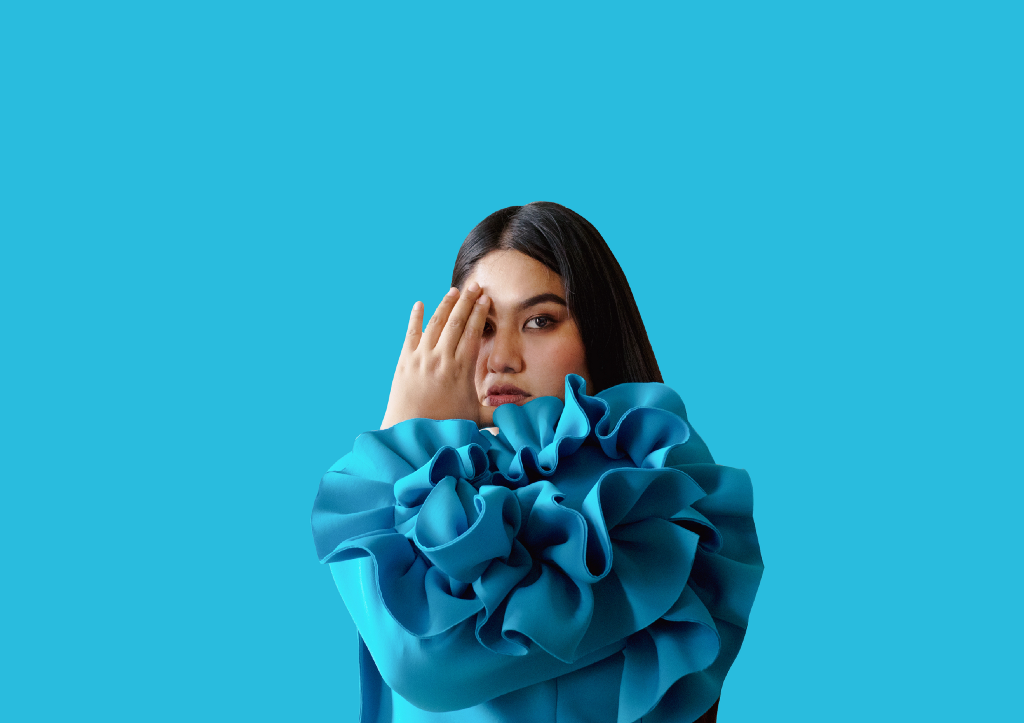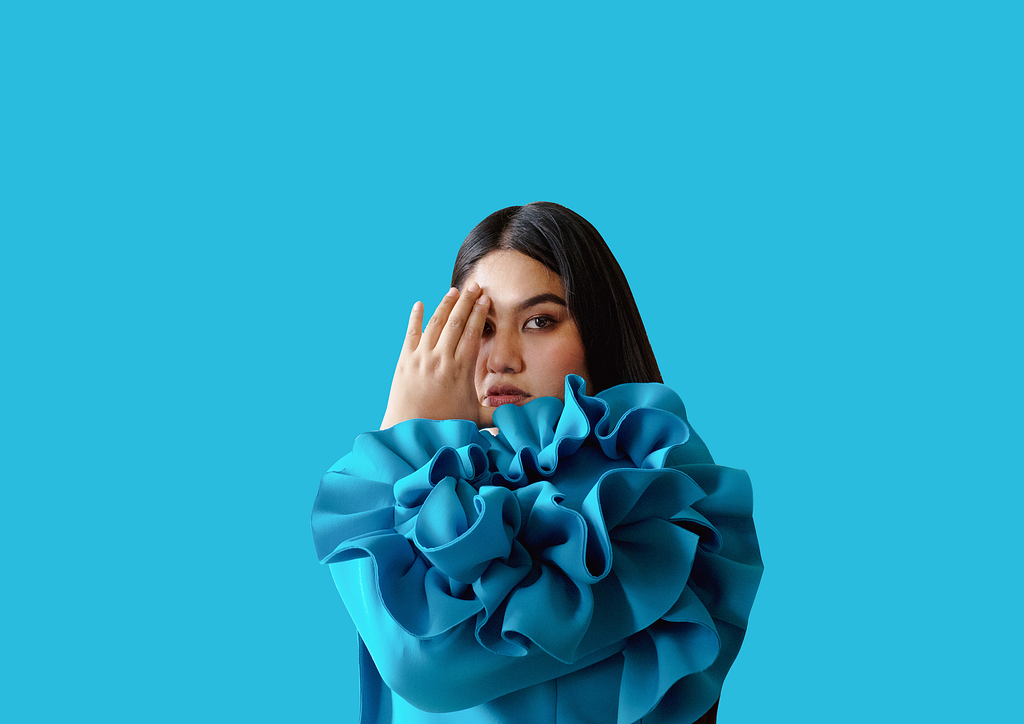Female Founders: Christina Oden of OMD Corp On The Five Things You Need To Thrive and Succeed as a Woman Founder
An Interview With Candice Georgiadis
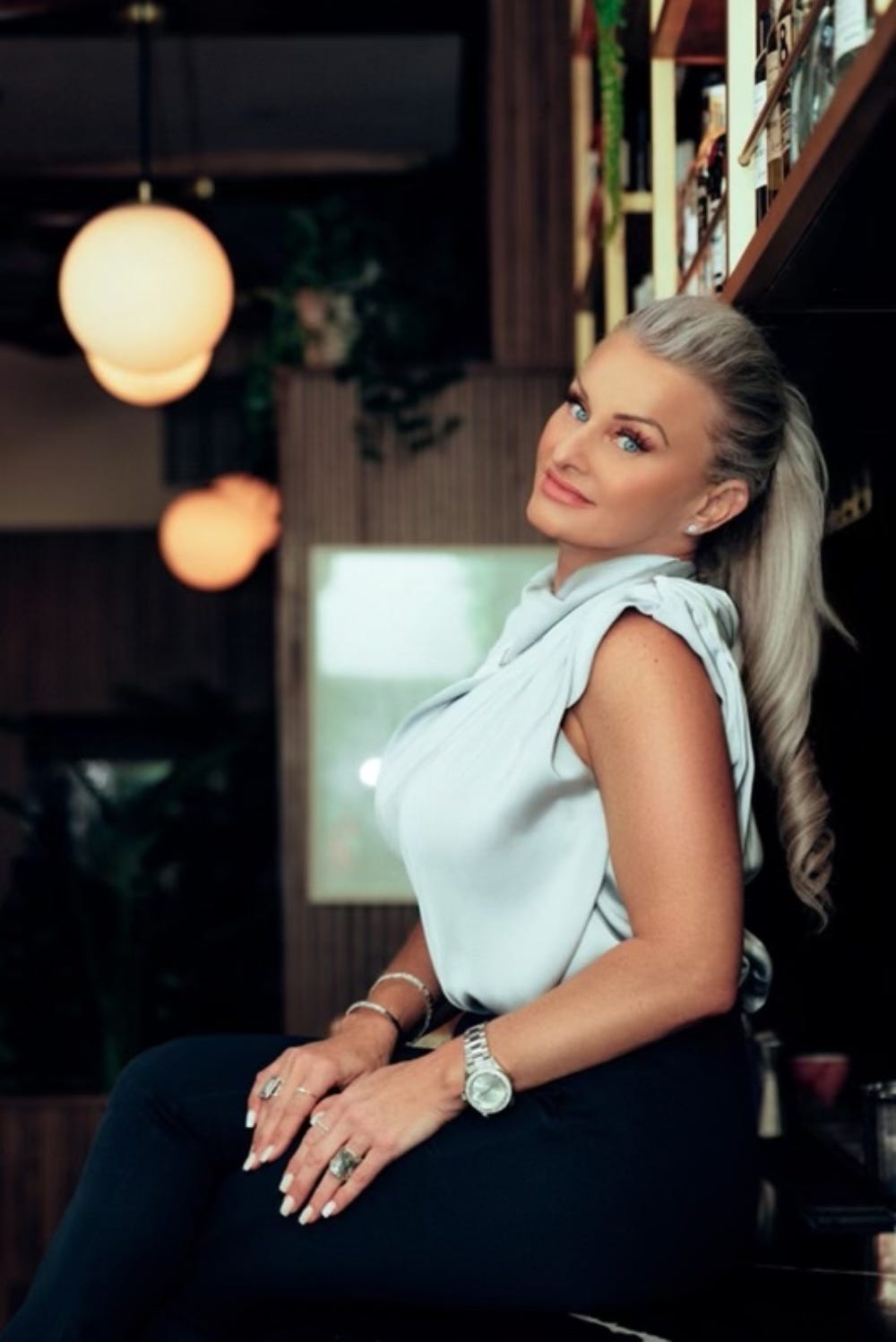
No one is going to believe in you, if you do not believe in yourself first! Believing that you can be a founder is the first step, figuring out how is the next! When I first went out on my own, I had a male “partner” because I thought no one would take a woman GC seriously here in NYC. After 6 months of doing absolutely everything on my own I looked around and realized I only needed to believe in myself and my team’s ability to be taken seriously. So, I bought out my partner, shortened the name of my company and have only increased in sales year after year since! Had I simply believed in myself, I would be that much further along.
As a part of our series about “Why We Need More Women Founders”, I had the pleasure of interviewing Christina Oden.
Christina Oden is the Founder & President of OMD I Corp., a Commercial & Residential General Construction Company licensed in NY, NJ & FL. Her Company has built more than 50 NYC high end, well known, and often times Celebrity Chef owned Restaurants and Food & Beverage venues, not to mention their hundreds of residential accolades. Christina is among the less than 3% of Woman Founders within the Construction Industry in NYC.
Thank you so much for doing this with us! Before we dig in, our readers would like to get to know you a bit more. Can you tell us a bit about your “backstory”? What led you to this particular career path?
I fell into this industry back in college in Kentucky and as I became good at it, I learned that I truly had a passion for building amazing things out of often times nothing but a pile of wood and a drawing. I grew up in the South where woman working with their hands alongside men isn’t really that rare, but then I moved here to NYC for law school, only to find my calling when I worked for a large land developer here. I did attempt to work in a law firm for a short while but found myself to be quite miserable there. Building was my passion, not sitting behind a desk negotiating with people all day. Not long after, I decided to create my own company doing exactly what I love.
Can you share the most interesting story that happened to you since you began leading your company?
Well, this happens quite often; salesman will come to the jobsite and ask to speak to “The Boss” and when my crew points to me, they still ask me to speak to my boss. When I say, you’re speaking to her, they usually have to take a moment to adjust their thinking. Most make a comment about how rare it is to find a woman at the helm, especially on the size jobsites that we are often times blessed to be a part of. Most female salesman though get a real joy out of it. Let’s just say high fives have happened more than once.
Can you share a story about the funniest mistake you made when you were first starting? Can you tell us what lesson you learned from that?
That has to have been when I ordered a pallet and not a case. After having to beg and plead for the vender to take back the overage, I learned from that point on to check quantities closely! But you should have seen the receivers face when a semi-truck backed up to the jobsite and started unloading!
None of us are able to achieve success without some help along the way. Is there a particular person who you are grateful towards who helped get you to where you are? Can you share a story about that?
Yes, I won’t name any names here but when I moved here from Kentucky my accent was thick and no one seemed to take me seriously, nor were they ambitious to even give me a chance. However, this one developer saw me in action as a Jr PM. He heard me get high strung at the board room gentlemen who clearly had never worked on a job site before, nor had they ever gotten their hands dirty before. He realized that had I not called them out and stood up to them that he potentially would have lost millions of dollars on building incorrectly. He saw that I cared enough about the project that I would stand up to those set out to harm it instead of admitting they were wrong even if it meant I could be fired. From that interaction he gave me a chance to really learn from him some valuable skills that have still stuck with me today. Then, when I went out on my own many years later, I thought he would blackball me from the industry, but he did the exact opposite. He informed his subcontractors that if they didn’t give me bids for my projects that they would no longer be getting requests from his company moving forward. He owed me nothing, but he did that just the same. You know, I still use those same subcontractors today as we have all become a sort of work family. I will be forever grateful for his kindness and generosity.
Ok, thank you for that. Let’s now jump to the primary focus of our interview. According to this EY report, only about 20 percent of funded companies have women founders. This reflects great historical progress, but it also shows that more work still has to be done to empower women to create companies. In your opinion and experience what is currently holding back women from founding companies?
I think most woman feel that they must give up having a family to operate a company and unfortunately for the most part that tends to be true due to the hard time mothers have in finding a support system that will allow her to both raise a family and cultivate a successful business. I am in the construction industry and there are less than 3%-woman founders in NYC and most that are here are really operated by a wife and husband team. Solo female founders like myself are like unicorns. I wish there was more support for woman who want a family and a business because until there is, this will remain an uphill battle.
Can you help articulate a few things that can be done as individuals, as a society, or by the government, to help overcome those obstacles?
I know for the construction industry there are quite a few “Woman and Minority” contract allocations. However, the preapproval process has layers and layers of bureaucracy, all of the red tape is literally drowning and not to mention, intimidating. One ends up giving up rather than suffering through the process. In the end, they get a variance approval to be able to award the jobs to a non-Woman or Minority due to not having anyone bid for the contract that fits the criteria. So, while it sounds all good intentioned for the city to claim that 30% of all Government Construction Contracts are allocated for us, most never are awarded as such. The Pre-Approval process needs to be streamlined & accepting of smaller up and coming companies. We have no issue with proving that we belong, but you have to at least allow us up to bat, if you wish to ever see us knock one out of the park!
This might be intuitive to you as a woman founder, but I think it will be helpful to spell this out. Can you share a few reasons why more women should become founders?
Woman by nature are more detail oriented, we are more understanding, even nurturing if you will. This allows for a better work environment, quality of work produced and far better customer service communications. Men have their attributes as well, ones that we cannot do without in business. However, woman if they just had a little more self-confidence & support, I feel could truly be the deciding factor in the successfulness of any business.
What are the “myths” that you would like to dispel about being a founder? Can you explain what you mean?
“Women bring their emotions to work” — Well, other than an unparalleled tireless work ethic fueled by a passion and a sense of obligational commitment to both my clients and team to succeed, my emotions are checked at the shed when I come through the doors to work. Who I am as a woman drives me to meet committed deadlines at all costs.
Is everyone cut out to be a founder? In your opinion, which specific traits increase the likelihood that a person will be a successful founder and what type of person should perhaps seek a “regular job” as an employee? Can you explain what you mean?
Founders are self-starters, free thinkers, ambitious by nature individuals. If you pop out of bed in the morning and can’t wait to get the day started and you are generally the one at your job doing everyone else’s workloads, while thinking of ways to simplify processes and are the go-to problem solver in the office, then you my friend are a founder! You only need to now find your passion and go after it. While if you are the type of person sitting around waiting for the weekend to come or for the clock to strike 5pm so that you may clock out and go home, then you should remain an employee (who by the way should also change career paths to something that does fuel you). Not everyone is a founder, you either are or you are not.
Ok super. Here is the main question of our interview. What are your “5 Things I Wish Someone Told Me Before I Started” and why? (Please share a story or example for each.)
- No one is going to believe in you, if you do not believe in yourself first! Believing that you can be a founder is the first step, figuring out how is the next! When I first went out on my own, I had a male “partner” because I thought no one would take a woman GC seriously here in NYC. After 6 months of doing absolutely everything on my own I looked around and realized I only needed to believe in myself and my team’s ability to be taken seriously. So, I bought out my partner, shortened the name of my company and have only increased in sales year after year since! Had I simply believed in myself, I would be that much further along.
- Leave family & friendships for outside of business. Be friendly with clients and your team but do not let the lines blur when handling business. I tried to do construction for family and that was a disaster, as they know no boundaries. Then I tried to see my clients as friends when in the end they were only concerned with their own bottom-line, not the health of my company. Business is business, it’s not personal, so keep it strictly business. And all team members have to be held to the same rules, if you give an inch, they will try to push the boundaries even further.
- Keep super strict accounting and pay yourself a specified salary. Your company is not your piggybank to use as needed. All extra profits should remain in the company to keep it healthy and thriving. If you keep yourself regimented and budgeted both your home life and business will have successful longevity.
- Create SOPs (Standard Operating Procedures) for everything that you do over and over in your business. Once you have those SOP ironed out, teach them to your team and hold everyone accountable for following them. This will save yourself a lot of headaches in the long run. Let’s just say my first year setting with the tax accountant taught me a whole lot about Standard Operating Procedures and organizational skills!
- Take time for yourself or you will burn out and not be any good to anyone especially yourself. I used to push myself by saying, “If I would work myself to the bone for an employer, then I can definitely do it for myself.” And that is true to a point but there comes a time when your brain and bones need to rest and regenerate. If you wouldn’t race a Lamborghini on an empty fuel tank and expect it to make it across the finish line, then you can’t expect yourself to run on empty without refueling. I used to work 7 days a week, I would be on the jobsite before my team arrived and be the one shutting off the lights at night but then I started making mistakes, allowing minor things to fall between the cracks. That’s when I realized 1, I had a work capacity limit not to exceed and 2, I had to write everything down in my sheepskin book. Both have proven to be instrumental in my company’s continued success.
How have you used your success to make the world a better place?
I feel that I have in some small ways, but I have far grander desires for the future in that regard that I feel will be more impactful. It starts by showing woman that we can do anything and everything that we set our minds to do. I try each day to defy all social restraints, and against all odds, time and again have proven that woman are equal to men. While we are quite different and both are unquestionably needed, my gender is not to be looked upon as a handicap in any industry.
You are a person of great influence. If you could inspire a movement that would bring the most amount of good for the greatest number of people, what would that be? You never know what your idea can trigger.
I would love to inspire the world to instead of looking at our differences, look to our similarities and instead of discouraging others, encourage them. Be a champion for each other, instead of judge and jury. I feel this would make the world a far better place to live and raise our children in. Not to mention all the new wonderous things that could be cultivated from all this newfound support.
We are very blessed that some very prominent names in Business, VC funding, Sports, and Entertainment read this column. Is there a person in the world, or in the US with whom you would love to have a private breakfast or lunch with, and why? He or she might just see this if we tag them.
Elon Musk, of course. However, I would answer this way even if he were not the wealthiest man in the world. I am fascinated by how his creative, out of the box mind seems to work. Having even a little insight to that way of thinking, to me would be quite fascinating and a truly priceless experience.
Thank you for these fantastic insights. We greatly appreciate the time you spent on this.
Female Founders: Christina Oden of OMD Corp On The Five Things You Need To Thrive and Succeed as a… was originally published in Authority Magazine on Medium, where people are continuing the conversation by highlighting and responding to this story.


